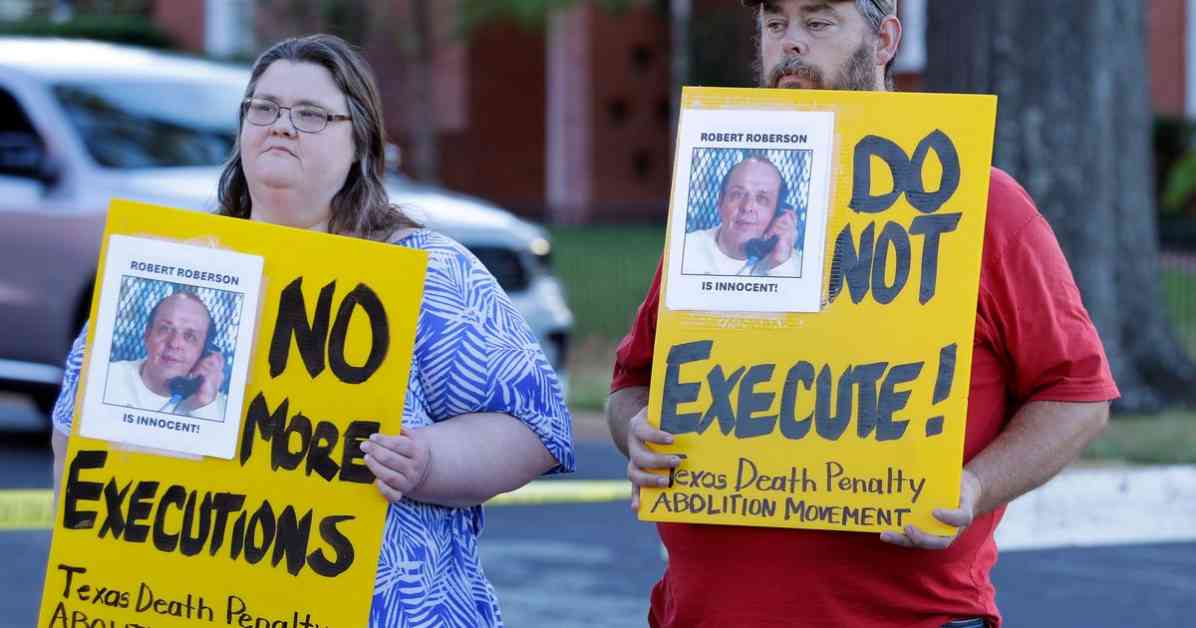The recent decision by the Texas Supreme Court regarding a last-minute subpoena to halt an execution has sparked controversy and legal debate. The case of Robert Roberson, who was scheduled to be executed by lethal injection on October 17, took a dramatic turn when lawmakers issued a subpoena for him to testify at the Texas Capitol just days before his scheduled death.
This unprecedented move led to a clash between the state’s criminal and civil courts, with the Texas Supreme Court ultimately ruling against the use of a legislative subpoena to stop an execution. While this decision may have disappointed those who were advocating for Roberson’s case, it sets an important precedent for future legal proceedings involving death row inmates.
Robert Roberson’s case has garnered significant attention not only because of the last-minute subpoena but also due to the nature of his conviction. He was sentenced to death in 2003 for the killing of his 2-year-old daughter, based on what some experts argue was faulty evidence of a “shaken baby” diagnosis.
The bipartisan support that Roberson has received from lawmakers and medical professionals highlights the complexity and controversy surrounding his case. If executed, he would be the first person in the United States to be put to death under the diagnosis of shaken baby syndrome.
The legal wrangling and political maneuvering surrounding Robert Roberson’s case underscore the challenges and ethical dilemmas inherent in the criminal justice system. The use of a legislative subpoena to halt an execution raises questions about the separation of powers and the role of lawmakers in judicial matters.
While the Texas Supreme Court’s ruling may have brought a sense of finality to this particular case, the broader implications of this decision are likely to reverberate through future legal proceedings. The debate over the use of shaky evidence in capital punishment cases and the role of lawmakers in influencing judicial outcomes is far from over.
As the legal and ethical complexities of Robert Roberson’s case continue to unfold, it serves as a stark reminder of the high stakes involved in matters of life and death. The intersection of politics, law, and morality in the criminal justice system is a fraught and contentious terrain, where the consequences of error or injustice are irreparable.
In conclusion, the Texas Supreme Court’s ruling against the last-minute subpoena to halt Robert Roberson’s execution marks a significant chapter in the ongoing saga of his case. While the legal battles may have come to a temporary halt, the broader implications of this decision are likely to shape future debates and discussions surrounding capital punishment in the United States.






















